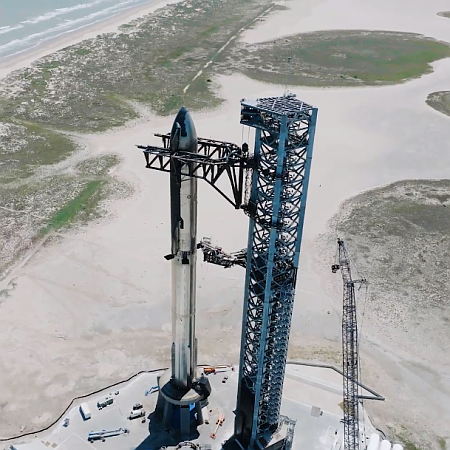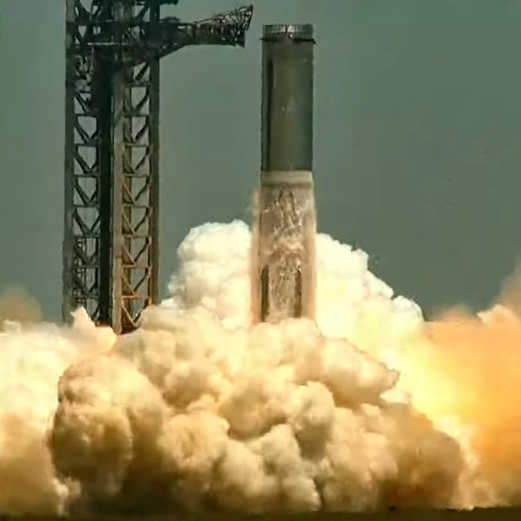Starship/Superheavy 2nd test launch likely delayed until next year by federal bureaucracy and White House

Starship stacked on Superheavy, September 5, 2023,
when Elon Musk said it was ready for launch
They’re coming for you next: While answering questions from reporters at a conference yesterday on when SpaceX might get its next Starship/Superheavy launch license, FAA acting chief Polly Trottenberg said she hoped that license will be awarded by October, but then slipped in one minor additional detail that had not previously mentioned or required:
SpaceX would still need a separate environmental approval from the U.S. Fish and Wildlife Service before a launch. Trottenberg did not say how long that might take.
Not surprisingly, the story from Reuters buries this detail, spinning the story to make it seem that the FAA is eager to help SpaceX launch. Similarly, this NasaSpaceFlight.com story (a space news outlet which has also tried to spin things to make the delays appear the fault of SpaceX) fails to even mention this detail.
SpaceX is now destacking Starship from Superheavy (live stream here).
I predicted in the spring that intransigence from the federal bureaucracy, controlled by the Biden administration, would likely delay this launch well past August, and likely into next year. I also said I would be thrilled if my cynical prediction turned out to be wrong.
Sadly, it looks like that prediction will be correct, and in fact might have actually been conservative. » Read more

Starship stacked on Superheavy, September 5, 2023,
when Elon Musk said it was ready for launch
They’re coming for you next: While answering questions from reporters at a conference yesterday on when SpaceX might get its next Starship/Superheavy launch license, FAA acting chief Polly Trottenberg said she hoped that license will be awarded by October, but then slipped in one minor additional detail that had not previously mentioned or required:
SpaceX would still need a separate environmental approval from the U.S. Fish and Wildlife Service before a launch. Trottenberg did not say how long that might take.
Not surprisingly, the story from Reuters buries this detail, spinning the story to make it seem that the FAA is eager to help SpaceX launch. Similarly, this NasaSpaceFlight.com story (a space news outlet which has also tried to spin things to make the delays appear the fault of SpaceX) fails to even mention this detail.
SpaceX is now destacking Starship from Superheavy (live stream here).
I predicted in the spring that intransigence from the federal bureaucracy, controlled by the Biden administration, would likely delay this launch well past August, and likely into next year. I also said I would be thrilled if my cynical prediction turned out to be wrong.
Sadly, it looks like that prediction will be correct, and in fact might have actually been conservative. » Read more


